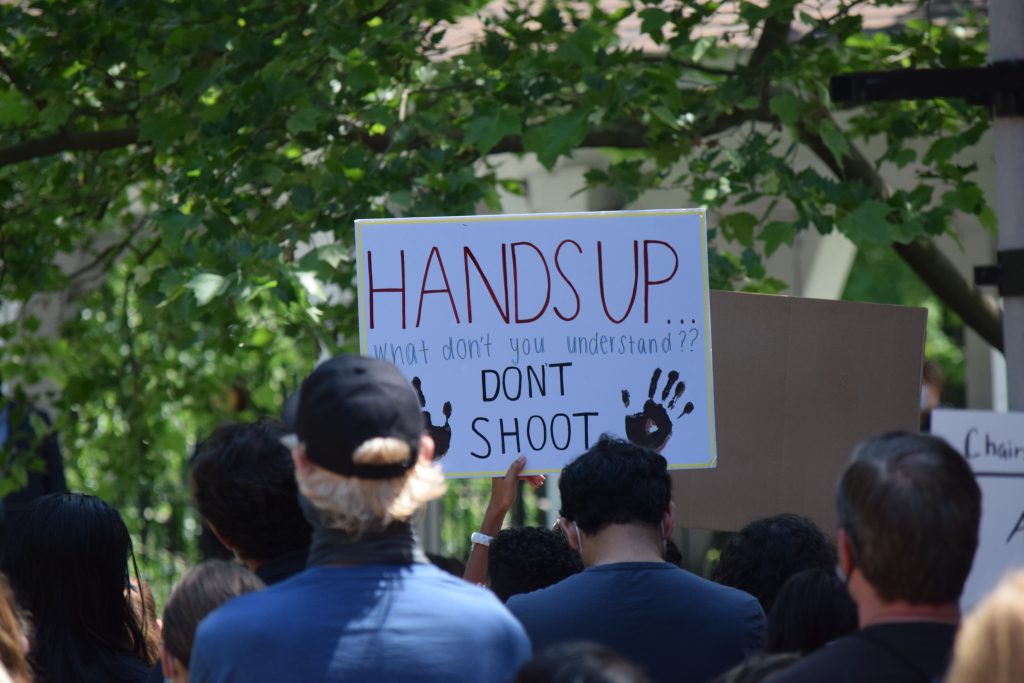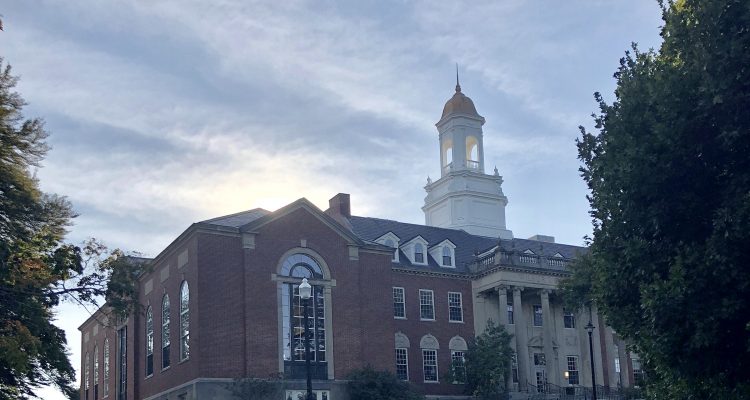By Caroline Lecour
The University of Connecticut hosted their first week of a new, one-credit course on anti-Black racism the week of Friday, Sept. 18.
The course, titled “U.S. Anti-Black Racism” is available for both undergraduates and graduates with a staff and faculty course to start today.
The nine-week course will be split into nine different modules, all taught by a handful of different professors specializing in the corresponding topic.
According to Dr. Shardé Davis, Assistant Professor of the Department of Communication at UConn and one of the professors teaching the course, organizing the course this way was a way to introduce students to other professors teaching other Africana courses here at UConn.
“We really wanted this to be a tasting pallet for students, not only giving them a taste of Anti-Black racism meaning as a topic and in terms of literature and giving them some exposure but also giving them a taste of our black faculty here at UConn who teach 3-unit courses that will allow students to deep dive into some of these subtopics,” Davis said.
Kaitlynn Styles, a third-semester history major and political science minor, enjoys the way the course is taught in modules as to get a well rounded aspect of anti-Black racism in every facet of life.
“The history of racism is not just at UConn, but across the board,” Styles said. “This is a problem in communication fields. This is a problem in health care. This is a problem across the board, so wouldn’t it be appropriate to only have professors from the Department of History or Africana Studies, right? It wouldn’t be well rounded.”
The class introduces students to the foundations of concepts from systemic racism and anti-Black racism; Black-led and intersectional social movements; to Black agency and resilience to name a few.

The idea of the course sparked from a virtual town hall meeting this past July, when students realized the university had put in the resources to create a 1-credit course on the coronavirus pandemic, but not one to address the unrest that sparked this past summer on systemic racial issues.
“Some of our Black students, our Black leaders at UConn met with with [the] president during a town hall hosted by the African American Cultural Center and brought to his attention that there’s another pandemic that didn’t just surface recently — even though it’s certainly at the tips of our tongue and more immediate — it has existed since this country was created,” said Davis.
Davis notes that although the creation of this course was a symbolic gesture as a response to Black students’ needs, the creators of the course realize that this is just the first step.
“If there was anything to glean from this, it’s that this is not a one and done,” said Davis. “I wouldn’t have — neither would have Dr. Embrick or Dr. Castillo-Montoya— we would not have put our names on this if we were not, rest assured that this class was going to be more than a one and done. This is not a band aid.”
According to Styles, she is taking the course not only to educate herself as a responsibility to understand the struggles of her future students, but also to use this course to spark change and have conversations with the people in her life.
“I feel it would be incredibly ignorant if I didn’t take this course, especially as a white female,” said Styles. “I think it’s my job to educate myself, especially as a history major, and especially as someone who wants to be an educator because you’re gonna have students who are different from you, and it’s not kind to not understand their struggles as a student and as a human.”
Davis encourages any and every student, no matter what major, to attend the course as anti-Black racism pertains to multiple aspects of everyday life.
“It is imperative that we have some foundations, some basic level understanding about how this society works. Black history is American history; they are synonymous,” said Davis. “So just like we have to have or we should have a firm grasp on American history, we also in the same breath should have a firm grasp on Black History.”


